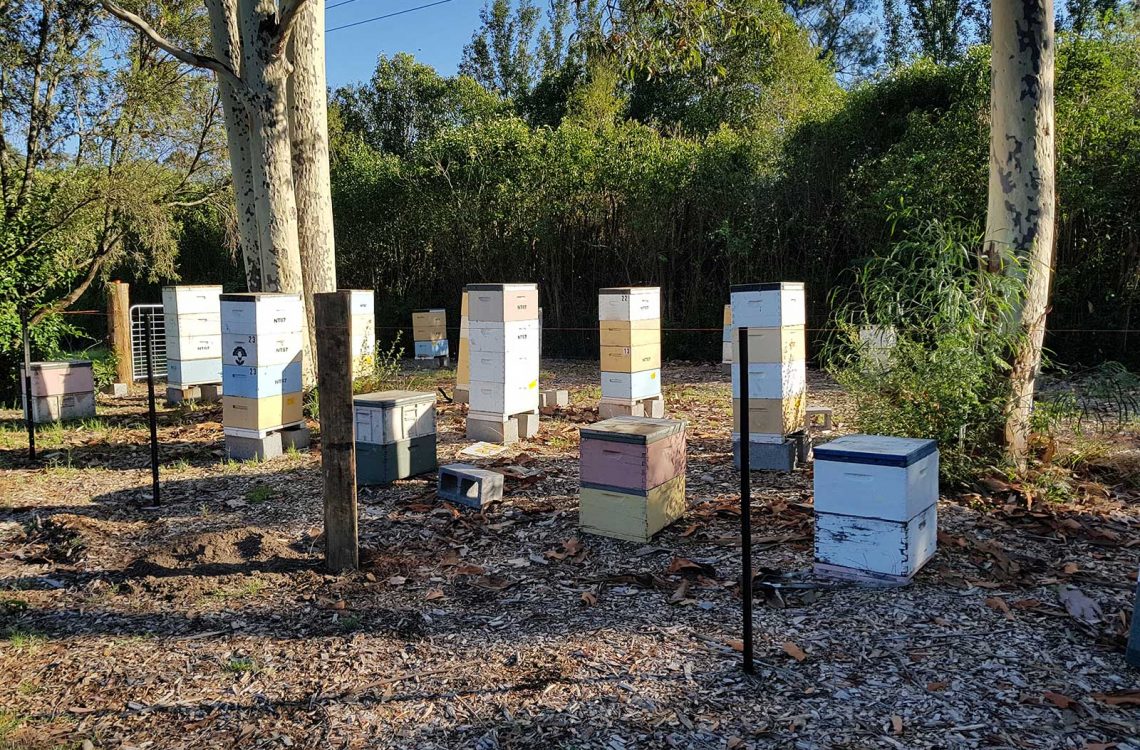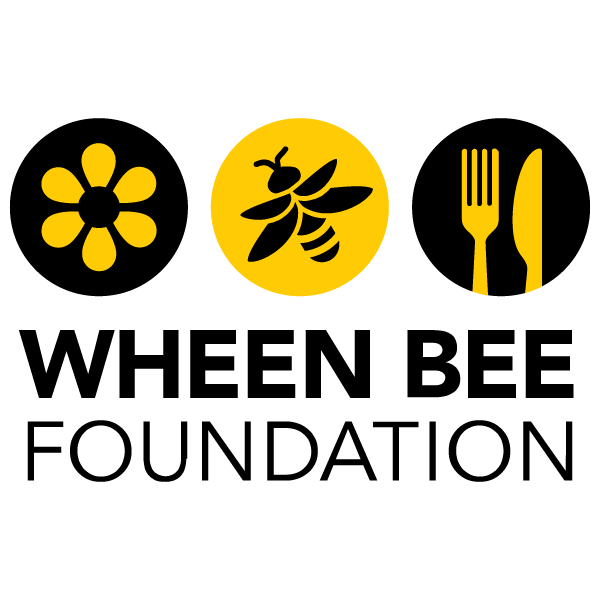News & Media

Wheen Bee Foundation research apiary fights Varroa
- February 17, 2022
- | News & Media, Research
Varroa is an external mite that feeds on both brood and adult bees, spreading viruses in the process. The combined effects of predation and viruses often result in colony death. It has spread all over the world, including New Zealand, but has not yet been detected in Australia.
The Wheen Bee Research Apiary is located beside the Hawkesbury River at North Richmond on the property that was once the home of the Foundation’s benefactor, Gretchen Wheen.
Bruce White, a veteran apiculturist of 41 years with the NSW Government, met Gretchen Wheen when they studied together in the early 1960s and now manages the apiary.
“Her dream was that the property become an education centre and apiary used for the benefit of the industry,” he said.
Since 2017 that dream has come to fruition. The Wheen Bee Foundation Research Apiary allows researchers to test various management interventions in a practical field environment, but under controlled conditions.
Having access to an apiary that is geographically removed from other field sites, greatly strengthens the value and reliability of the research and becomes an added benefit for scientists.
Sydney University bee researcher Dr Nadine Chapman is the latest to use this important facility. She is studying “uncapping behaviour” in bees as a possible defence against Varroa.
European honey bee populations that have proven resistant to Varroa are known to put a hole in the wax capping of brood cells, in a bee comb designed to raise larvae, so they can better smell and detect the presence of Varroa mites.
It seems this “uncapping” may also change the temperature and humidity of these bee “cribs” and reduce the Varroa mite’s ability to reproduce in them.
Dr Chapman will inspect Wheen Bee hive brood cells under a microscope to detect colour changes which indicate uncapping. She will also look at the genetics of the uncapping bees to discover if the trait is influenced by genetics, and is therefore something we can select for in Australia.
If it’s genetic Dr Chapman suggests this characteristic could be bred into Australian bees as a protection against Varroa if and when it arrives on our shores.
Australia queen breeders currently select for bees that are particularly hygienic, because this is known to discourage Varroa.
“It would be good to know if there are other things we could have in our arsenal,” Dr Chapman told the Wheen Bee Buzz.
Her research is part of the Plan Bee project – a national honey bee genetic improvement program.
Dr Chapman said the Wheen Bee Research Apiary saved her time and money… allowing her to make better use of Plan Bee research funds.
“Looking after bee colonies year-round is a big job. Being able to access them as-needed is a real boon for me and lets me get more research done for Plan Bee.
“I love the Wheen Bee Foundation’s work and they have been huge supporters of Plan Bee since its inception,” Dr Chapman said.
If any queen bee breeders would like to participate they can contact Dr Chapman by email: nadine.chapman@sydney.edu.au; or phone: 02 9351 2267.
In supporting Dr Chapman’s work, the Wheen Bee Foundation is protecting a $150 million honey and wax industry and $14.2 billion worth of Australia’s agricultural output which is dependent on pollination.
Previous projects at Richmond have studied Small Hive Beetles and the impact of various chemicals on bees.
“The research apiary is a fantastic resource,” says Dr Andrew Hayes, a senior scientist with University of the Sunshine Coast (USC) who used the Wheen Bee Foundation apiary to trial a lure for attracting Small Hive Beetles.
“Having hives specifically designated for use by our research project, and managed for us in the way that is best for our experimental design is invaluable,” he said.
The Wheen Bee Foundation is a not-for-profit organisation that promotes awareness of the importance of bees for food security, biodiversity and ecosystem health and raises funds for research that addresses national and global threats to bees.
If you would like to use the Research Apiary, make a donation, or volunteer at the apiary, please contact Fiona Chambers at ceo@wheenbeefoundation.org.au or visit
www.wheenbeefoundation.org.au
Share this post
The Latest Buzz newsletter
View our past newsletters and subscribe below.
Subscribe
Subscribe to our newsletter to keep informed about our important work. We’ll also keep you up-to-date with all the latest news, industry information and events.



